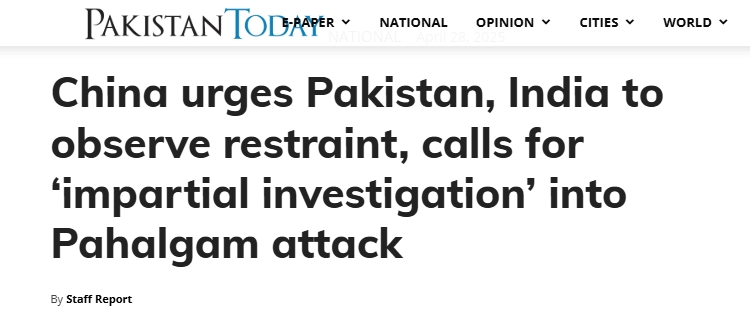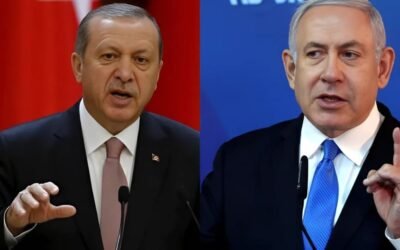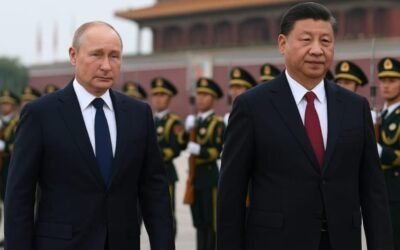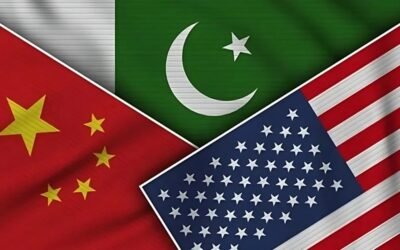The Kashmir conflict is one of the oldest unresolved debates on the agenda of the UN Security Council. It is still a sour legacy of the partition of the subcontinent. Pakistan still keeps its policy of supporting the Kashmiri right of self-determination according to the UNSC Resolution 47. In this regard, China’s role as a strategic partner is significant. Is China standing with Pakistan and the Kashmiri people or using silence as an interest? A more significant examination reveals that China pursues a multi-layered approach. This is a self-interest strategy, but it still offers some valuable diplomatic assistance to Pakistan against India’s actions.
From Historical Restraint to Strategic Assertiveness
China’s stance on Kashmir has shifted over time. Initially, it maintained a cautious and neutral position. It treated Kashmir as a bilateral issue between India and Pakistan. This changed in August 2019. India revoked Articles 370 and 35A, removing Jammu and Kashmir’s autonomous status. In response, Pakistan sought international support. China stepped in and arranged the first UNSC closed-door consultations on Kashmir since 1965. Chinese Ambassador Zhang Jun said members showed “serious concern.” He stressed that the issue should be resolved through the UN Charter, Security Council resolutions, and bilateral agreements. This move challenged India’s claim that Kashmir is an internal matter. It brought global focus to India’s actions. Although it didn’t lead to a formal resolution, China’s intervention supported Pakistan’s view that Kashmir is an international dispute.

Source: United Nations
Alt text: The UN Security Council met on Kashmir after decades, with China supporting Pakistan’s stance and urging a peaceful resolution, while India called it an internal issue.
Strategic Drivers Behind China’s Kashmir Policy
1.Protecting CPEC Interests
China’s support for Pakistan on Kashmir is tied to its economic interests. The China-Pakistan Economic Corridor (CPEC), worth more than $60 billion, runs through Pakistan-administered Kashmir. India calls CPEC illegal, while Pakistan rejects this stance. This poses a threat to China’s key infrastructure and energy routes. By backing Pakistan, China protects its investments and warns against any unilateral moves by India.
2.Containing India’s Rise
China sees India as a regional rival in Asia and the Indian Ocean. Supporting Pakistan on Kashmir keeps India preoccupied with its western border. This divides India’s focus and weakens its strategic reach. With India facing a two-front dilemma, i.e., pressure from both China and Pakistan, it becomes harder for New Delhi to challenge China’s regional dominance.
3.Strengthening Border Claims
China controls Aksai Chin, a region India claims as part of Kashmir. By aligning with Pakistan’s stance, China undermines India’s claims. The 2020 Galwan Valley clash deepened this border dispute. Kashmir now serves as another front where China can apply pressure on India.
Diplomatic Tactics: Calibrated Advocacy over Confrontation
China employs careful diplomacy on Kashmir, opting for pragmatism over confrontation. It refers to UN resolutions and international law, characterizing Kashmir as a legacy dispute that requires peaceful resolution. This helps Pakistan’s legal case and shows India as ignoring global norms. China also offers to mediate between India and Pakistan. Pakistan accepts, but India refuses. This portrays China as a responsible power and highlights India’s reluctance to involve others. On terrorism, China stays vague. It condemns terrorism broadly but avoids naming Pakistan-based groups like Lashkar-e-Taiba. After India’s 2025 Operation Sindoor, China described the strikes as “regrettable.” This approach protects Islamabad from global criticism.
Why China’s “Strategic Silence” Benefits Pakistan
China’s strategic silence still benefits Pakistan in important ways. It keeps the Kashmir issue alive at the UN, even without formal action. This stops India from fully normalizing its control over the region. After the 2019 UNSC meeting, Pakistan’s envoy Maleeha Lodhi said it proved Kashmir is not just an internal Indian matter. China also supports dialogue between India and Pakistan. Pakistan alone lacks the power to bring India to the table. China’s repeated calls for talks, based on UN resolutions, help maintain international focus. This supports Pakistan’s demand for third-party involvement. During crises like the 2025 Pahalgam incident, China’s role becomes even more crucial. It calls for restraint and investigations. At the same time, it echoes Pakistan’s position as the victim. This softens criticism from the West and gives Pakistan diplomatic space.

Source: Pakistan Today
Alt text: Pakistan Today reported that China urged India and Pakistan to show restraint after the Pahalgam attack, reaffirming support for Pakistan’s security concerns and calling for a neutral investigation to maintain regional peace.
Strategic Support from China Bolsters Pakistan’s Kashmir Position
China’s support for Pakistan on Kashmir remains firm but measured. It focuses on maintaining regional stability, especially to protect the China-Pakistan Economic Corridor (CPEC). While China strongly defends Pakistan at global forums, it avoids steps that could escalate tensions. It blocks UN actions that target Pakistan, ensuring Islamabad is not unfairly singled out. At the same time, China chooses a balanced approach to India to protect its economic interests. China’s actions still help Pakistan keep the Kashmir issue alive on the global stage.
Conclusion
China’s Kashmir policy at the UN is not silent. It reflects strategic solidarity. China combines support for global rules with its national interest. For Pakistan, this backing is highly valuable. It helps keep the Kashmir issue international. It puts diplomatic pressure on India. It also offers Pakistan a sense of nuclear deterrence against Indian aggression. China may not go beyond certain limits due to its own regional goals. But its role in raising Kashmir at the UN and backing Pakistan’s position is crucial. In the Kashmir dispute, China’s presence ensures Pakistan is not alone.







